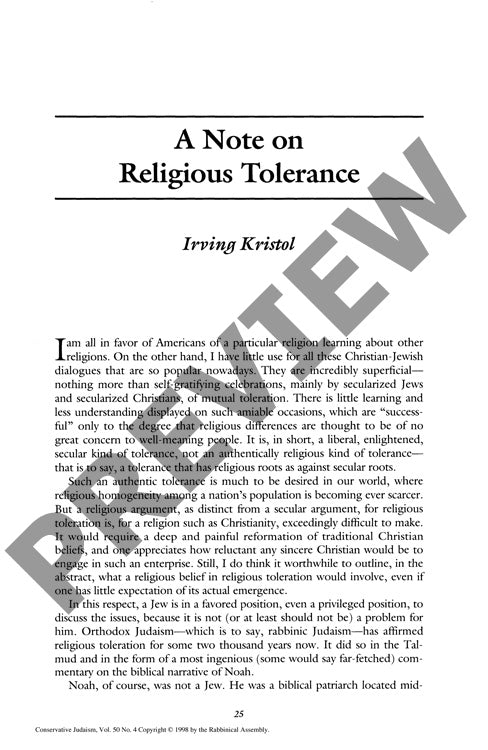A Note on Religious Tolerance
Couldn't load pickup availability
Religious tolerance in America emerged not from Christian doctrine but from Judaism's ancient Noahide tradition of universal moral law. While modern interfaith dialogues often celebrate superficial mutual acceptance, they sidestep fundamental theological conflicts between exclusive Christian salvation doctrine and genuine religious pluralism. Drawing on theological analysis and historical records—particularly George Washington's correspondence with Newport's Jewish congregation—this examination reveals how Judaism's Talmudic concept of seven moral commandments for all humanity provided a philosophical framework for American religious freedom. Though Christian denominations have gradually embraced more inclusive positions, their core doctrine of salvation through Christ continues to challenge authentic religious tolerance. Through comparative religious analysis, the research demonstrates how American legal and social institutions have implicitly adopted a Noahide rather than Christian model of religious freedom, prioritizing universal ethical behavior over theological doctrine. The path toward genuine religious tolerance in America's pluralistic society requires fundamental theological reformation regarding truth claims and salvation exclusivity, balancing theological relativism with universal moral principles.

More Information
-
Physical Description
-
Publication Information
Published 1998
ISBN
-
Publication Credits
Irving Kristol

